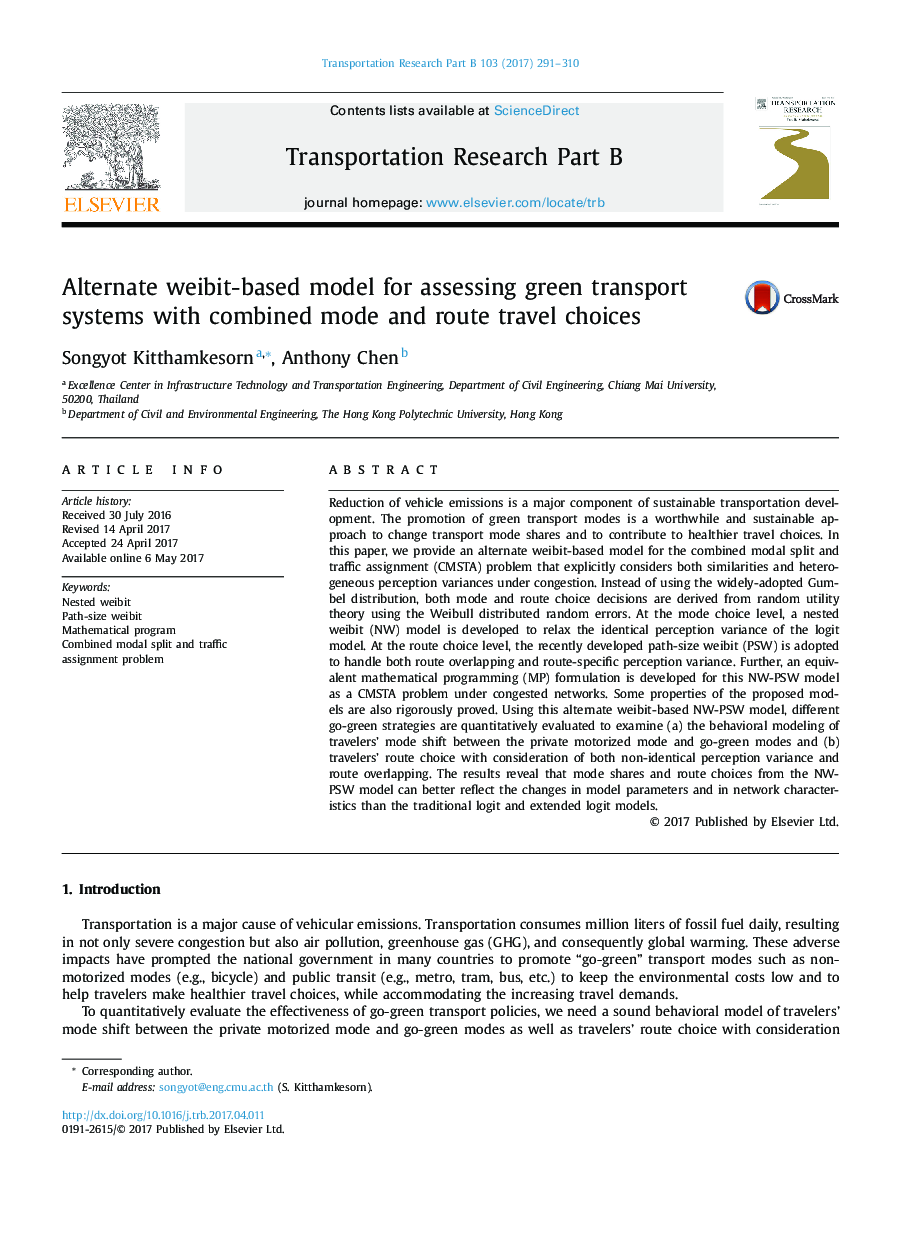| Article ID | Journal | Published Year | Pages | File Type |
|---|---|---|---|---|
| 5127002 | Transportation Research Part B: Methodological | 2017 | 20 Pages |
â¢Develop a new nested weibit model for mode choice.â¢Adopt a recently developed path-size weibit model for route choice.â¢Develop a new combined modal split and traffic assignment (CMSTA) model for green transportation systems.â¢Provide a weibit-based equivalent mathematical programming formulation for the CMSTA model.â¢Present numerical results for assessing go-green strategies.
Reduction of vehicle emissions is a major component of sustainable transportation development. The promotion of green transport modes is a worthwhile and sustainable approach to change transport mode shares and to contribute to healthier travel choices. In this paper, we provide an alternate weibit-based model for the combined modal split and traffic assignment (CMSTA) problem that explicitly considers both similarities and heterogeneous perception variances under congestion. Instead of using the widely-adopted Gumbel distribution, both mode and route choice decisions are derived from random utility theory using the Weibull distributed random errors. At the mode choice level, a nested weibit (NW) model is developed to relax the identical perception variance of the logit model. At the route choice level, the recently developed path-size weibit (PSW) is adopted to handle both route overlapping and route-specific perception variance. Further, an equivalent mathematical programming (MP) formulation is developed for this NW-PSW model as a CMSTA problem under congested networks. Some properties of the proposed models are also rigorously proved. Using this alternate weibit-based NW-PSW model, different go-green strategies are quantitatively evaluated to examine (a) the behavioral modeling of travelers' mode shift between the private motorized mode and go-green modes and (b) travelers' route choice with consideration of both non-identical perception variance and route overlapping. The results reveal that mode shares and route choices from the NW-PSW model can better reflect the changes in model parameters and in network characteristics than the traditional logit and extended logit models.
